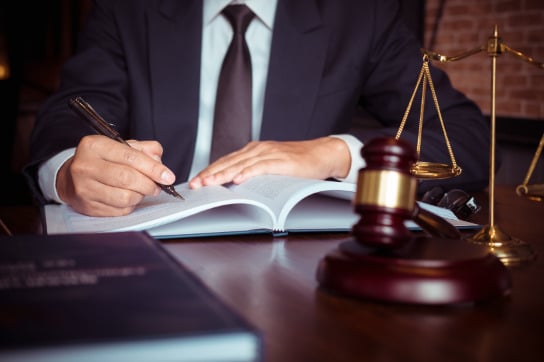Akin Gump – On July 24, 2014, a British expat living in Cambodia was convicted of defamation in the Phnom Penh Municipal Court for statements published on his personal blog relating to the director of a private investment firm. The case has implications for anyone doing business in the region and serves as an important reminder that, despite recent reforms, defamation remains a crime in certain pockets of Southeast Asia.
Background
Rupert Winchester is a journalist from the United Kingdom living in Cambodia, who maintains a personal blog called “The Mighty Penh.” In a June 4, 2013, blog entry titled “I Get Knocked Down,”[1] Winchester posted a photo of an orange colonial-era house, which was built at the turn of the 20th century a couple blocks from the Mekong River in Phnom Penh. Winchester claimed that Etienne Chenevier, a French property developer who serves as director of City Star Private Equity Asia, planned to raze the structure to make room for a seven-story condominium complex.
According to the complaint, Chenevier informed Winchester by telephone that City Star had no intention to knock down the building: “Why would we knock down our own building. … [I]f [you] print[] that I will sue [you].” After the conversation, Winchester posted on his blog, “Well I say you will [knock it down]. Knock yourself out, suing-wise, you cheap aggressive huckster.” Winchester also published an article containing similar statements about City Star in the Phnom Penh Post, where he was then working as an editor. The Phnom Penh Post subsequently issued a retraction. On June 7, 2013, Winchester removed the offending portions of his blog entry.
On July 27, 2013, Chenevier filed a complaint requesting criminal prosecution of Winchester. On July 24, 2014, Judge Ros Piseth found Winchester guilty of defamation, ordered him to pay $25,000 in damages to Chenevier, and imposed an additional $2,000 fine. According to The Cambodia Daily, Judge Piseth stated “[If you] say something bad about others it [could lead to] a defamation case.” Winchester intends to appeal the ruling.
Analysis
Connor Mullin
As early as February 2006, Cambodian Prime Minister Hun Sen called for the decriminalization of defamation.[2] That year, the National Assembly removed from the statute the possibility of imprisonment, but declined to fully decriminalize defamation.[3] As Chenevier’s case makes clear, prosecutors in Cambodia continue to try defamation cases in criminal courts using the resources of the government.
Article 305 of the Cambodian Penal Code currently reads: “Defamation shall mean any allegation or charge made in bad faith which tends to injure the honor or reputation of a person or an institution.” In other words, an individual can be convicted of the crime even if his statements do not result in actual damages, a necessary element of the civil cause of action in the United States.
The crime in its current form is broad enough to include statements published online regardless of the location of the author. Article 305 reaches statements made “by any means of audio-visual communications intended for the public.” As a result, a U.K. citizen could be haled into a Cambodian criminal court by a French citizen who merely resides in Cambodia based on a showing that the blog entry was “published in Cambodia and read around the world.”
Judge Piseth’s ruling comes as countries in Southeast Asia are rolling out new cybercrime laws that will significantly affect reputational recovery in the region. For example, the Congress of the Philippines passed the Cybercrime Prevention Act in 2012. However, “[t]he Philippines Supreme Court issued a restraining order on the implementation of the Cybercrime Prevention Act as one of its provisions regarded libel as a type of cybercrime that was punishable with up to 12 years’ imprisonment.”[4]
In February 2014, the court upheld the law, but limited the reach of the libel provision to the original author of the content.[5]
Similarly, in Cambodia, a working group of the Council of Ministers is also reportedly considering a Cybercrime Law.[6] Article 28 of the draft legislation titled “Contents and Websites” broadly criminalizes online content that “hinder[s] the sovereignty and integrity of the Kingdom of Cambodia,” “incite[s] or instigate[s] the general population [or] cause[s] one or more to generate anarchism,” “generate[s] insecurity, instability, and political cohesiveness,” or “slanders or undermine[s] the integrity of any governmental agenc[y].” The legislation tracks the U.S. Sedition Act of 1798,[7] for which, as Justice Oliver Wendell Holmes Jr. wrote, “the United States through many years ha[s] shown its repentance … by repaying fines that it imposed.”[8]
The draft legislation reaches conduct already prohibited by the Cambodian Penal Code, broadly criminalizing “[p]ublications … deemed damaging to the moral and cultural values of the society” including “defamation” and “slanders.”[9] The Cybercrime Act will likely carry stiffer financial penalties than the Penal Code and even reintroduce the possibility of imprisonment for defamation.[10]
As written, the legislation also subjects Internet service providers to liability for hosting offending content. In the United States, the Communications Decency Act generally shields ISPs from liability for third-party content so long as the ISP does not create or develop the content.[11]
The contemplated Cambodian legislation contains no such immunity. In fact, the legislation punishes any “continuation of publication” to the same extent as the original publication, capturing not just ISPs, but any user who links to or otherwise forwards the offending content.[12]
These developments will be significant for any individual or company doing business in Southeast Asia as Internet access and social media usage continue to surge in the region.
—By Mark J. MacDougall, Rebekah M. Jones and Connor Mullin, Akin Gump Strauss Hauer & Feld LLP
Mark MacDougall is a partner in Akin Gump’s Washington, D.C., office and a former federal prosecutor. Rebekah Jones is counsel in the firm’s Singapore office. Connor Mullin is an associate in the firm’s Washington office.
The opinions expressed are those of the author(s) and do not necessarily reflect the views of the firm, its clients, or Portfolio Media Inc., or any of its or their respective affiliates.
This article is for general information purposes and is not intended to be and should not be taken as legal advice.
[1] Portions of the entry are still available at https://goingphnomandon.wordpress.com/2013/06/04/i-get- knocked-down/
[2] Ellen Nakashima, Cambodia Moves Toward Openness, Wash. Post, Mar. 10, 2006, http://www.washingtonpost.com/wp-dyn/content/article/2006/03/09/AR2006030902149.html
[3] See Briefing Note, Cambodian Center for Human Rights, The Criminalization of Defamation and Freedom of Expression in Cambodia (May 2014), available at www.cchrcambodia.org/admin/media/analysis/analysis/english/2014_05_27_CCHR_Briefing_Note_Defam ation_in_Cambodia_(ENG).pdf
[4] See Wen-Chen Chang et al., Constitutionalism in Asia, Cases and Materials 711 (2014).
[5] See Camille Diola, SC: Online Libel in Cybercrime Law Constitutional, The Philippine Star, Feb. 18, 2014, available at http://www.philstar.com/headlines/2014/02/18/1291806/sc-online-libel-cybercrime-law- constitutional
[6] A draft English translation of the Cybercrime Law was reportedly leaked to a free speech advocacy group called Article 19. The organization has made a copy of the draft law available here: http://www.article19.org/data/files/medialibrary/37516/Draft-Law-On-CyberCrime_Englishv1.pdf
[7] That Act made it a crime, punishable by a $5,000 fine and five years in prison, “if any person shall write, print, utter or publish . . . any false, scandalous and malicious writing or writings against the government of the United States, or either house of the Congress . . . , or the President . . . , with intent to defame . . . or to bring them, or either of them, into contempt or disrepute; or to excite against them, or either or any of them, the hatred of the good people of the United States.” 1 Stat. 596 (1798).
[8] Abrams v. United States, 250 U.S. 616, 630 (1919) (Holmes, J. dissenting).
[9] See Article 28 ¶ 5, Draft Cybercrime Law, supra note 4.
[10] Id.
[11] See 47 U.S.C. § 230(f)(3).
[12] See Article 28, Draft Cybercrime Law, supra note 4.





